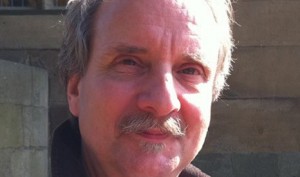Prof Holger Schutkowski, Deputy Dean in the School of Applied Sciences, joined BU in January. Here he provides his thoughts on training the next generation of researchers.
 In a week’s time I will have the great pleasure to open the School of Applied Sciences’ Postgraduate Research Conference. I was delighted that I was asked to give a keynote, not only because it is a nice way of making myself known to students, since I only arrived at BU in January, but also to share some thoughts about the way we do research. Whilst universities require some original research in the final year undergraduate dissertation, and to a much greater extent in Master’s programmes, it is at PhD level where we expect the clear evidence of intellectual independence, of playful recombination of knowledge, which will allow candidates to go beyond current established borders of thought, and to push scientific progress, something that is always happening at the fringes.
In a week’s time I will have the great pleasure to open the School of Applied Sciences’ Postgraduate Research Conference. I was delighted that I was asked to give a keynote, not only because it is a nice way of making myself known to students, since I only arrived at BU in January, but also to share some thoughts about the way we do research. Whilst universities require some original research in the final year undergraduate dissertation, and to a much greater extent in Master’s programmes, it is at PhD level where we expect the clear evidence of intellectual independence, of playful recombination of knowledge, which will allow candidates to go beyond current established borders of thought, and to push scientific progress, something that is always happening at the fringes.
Are we able to give advice? Should we? How can we make this happen? The latest deliberations about the future of current PhD systems and their ever-increasing production of graduates is beginning to raise serious concerns and to elicit calls for reforms, quite drastically, indeed (http://www.nature.com/news/2011/110420/full/472261a.html). Interestingly enough, they emphasise co-operation between institutions (consortia) and cross-disciplinary work.
While the former is already part of the RCUK agenda and is likely to shape the future of PhD funding and recruitment in the UK over the next years, the latter maybe can do with further encouragement. Certainly, one way is to encourage our PhD students to decidedly undertake an interdisciplinary project, which essentially means to embrace the boldness of crossing borders, to work across disciplines and to become acquainted with, adopt and modify interpretive frameworks of other, related or cognate subject areas. Often claimed, rarely done, though; unfortunately a recurring problem and certainly not confined to the fledgling researcher. Another approach is to ensure the research is firmly embedded into a wider and meaningful context, so that these connections across disciplinary borders can be made and the outcomes of the research become accessible and meaningful to the related or cognate subject areas we are trying to include in the first place.
As it happens, this is what I am going to talk about in my presentation, with case studies that necessitate contextualised analysis to demonstrate how we can bring past societies to life through the study of their skeletal remains. But to come back to the state of PhD systems: cross-disciplinary thinking and context awareness is what we want to instil in the researchers of the next generation. But this also requires the intellectual capacity and preparedness for doing so. The students we graduate need to be skilled and prepared for an increasingly competitive job market.
Prof Holger Schutkowski
Deputy Dean
School of Applied Sciences











 ESRC Festival of Social Science 2024 Open Call – Deadline for Applications Thursday 16 May
ESRC Festival of Social Science 2024 Open Call – Deadline for Applications Thursday 16 May We can help promote your public engagement event or activity
We can help promote your public engagement event or activity Horizon Europe News – December 2023
Horizon Europe News – December 2023
Developing the next generation of researchers takes time. It must be part of a long-term strategy and funded accordingly. I came to Bournemouth University from the University of Aberdeen in May 2009. When I left Aberdeen I had 12 PhD students. As these students were at various stages of completing their thesis, six completed in the first year-and-a-half and have graduated since. Today (July 6th 2011), another four students are graduating at the University of Aberdeen.
Most of these projects are interdisciplinary. For example, one PhD project studied the role of health services provided by Marxist rebels in Nepal during their conflict with the government in the period 1996-2006. The student had a background in population studies and health education and his three supervisors were a political scientist, a general practitioner and a medical sociologist. Another example, is a student who was trained and practising as a midwife, and her supervisors were a historian and a medical sociologist for her thesis with the title: Midwifery and Maternity Services in the Gaidhealtachd and the North of Scotland 1912-2005
Perhaps it is slightly easier in the School of Health & Social Care to be interdisciplinary than it is in other academic disciplines.
Prof. Edwin van Teijlingen
School of Health & Social Care, Bournemouth University